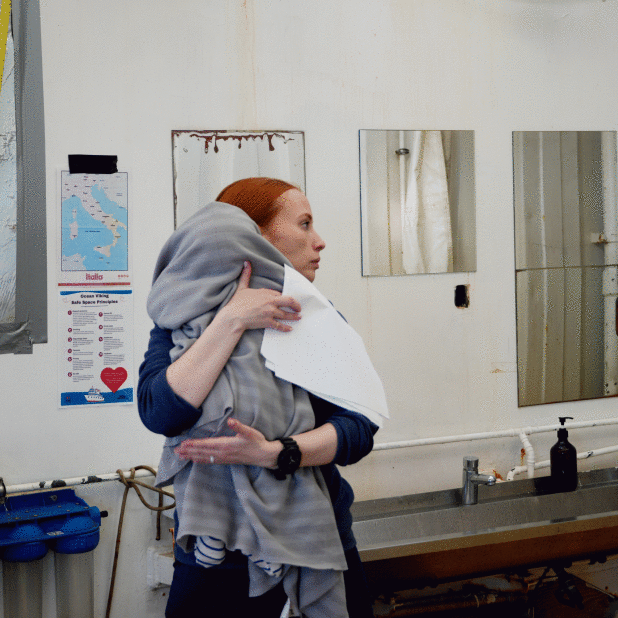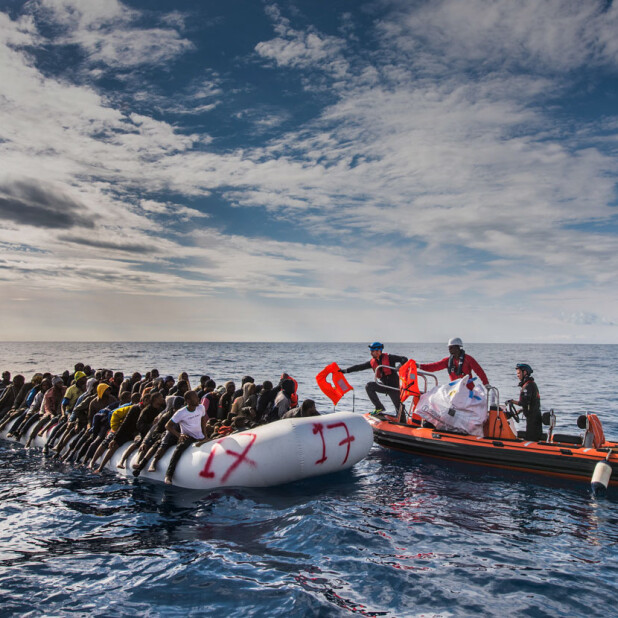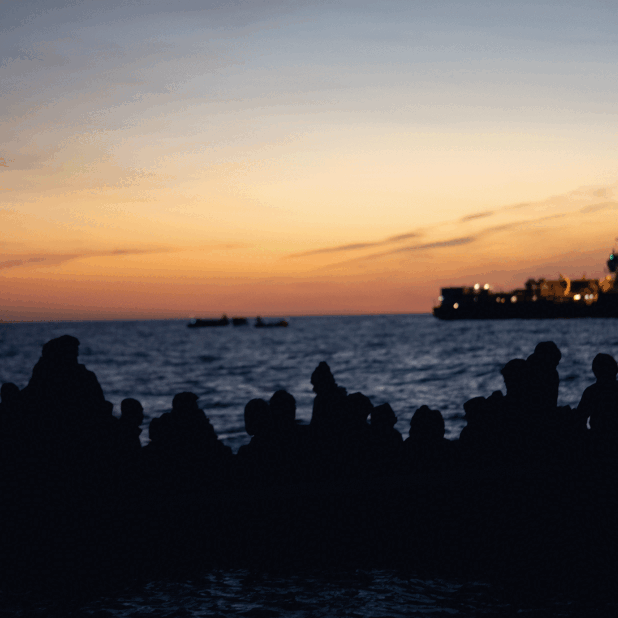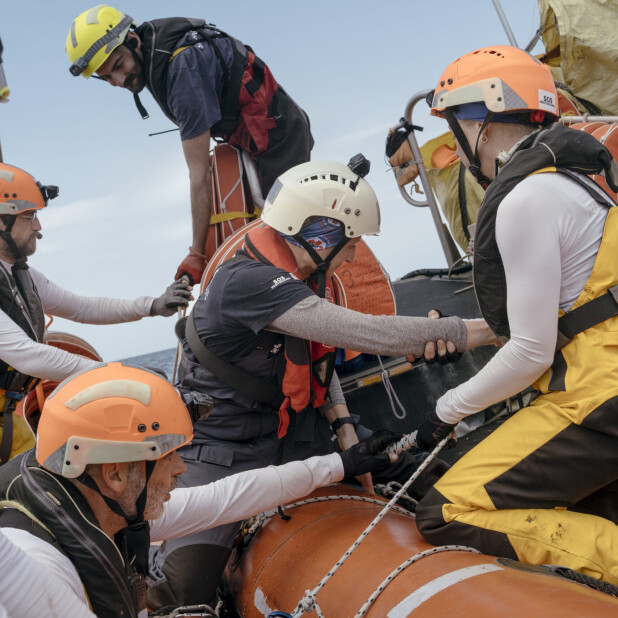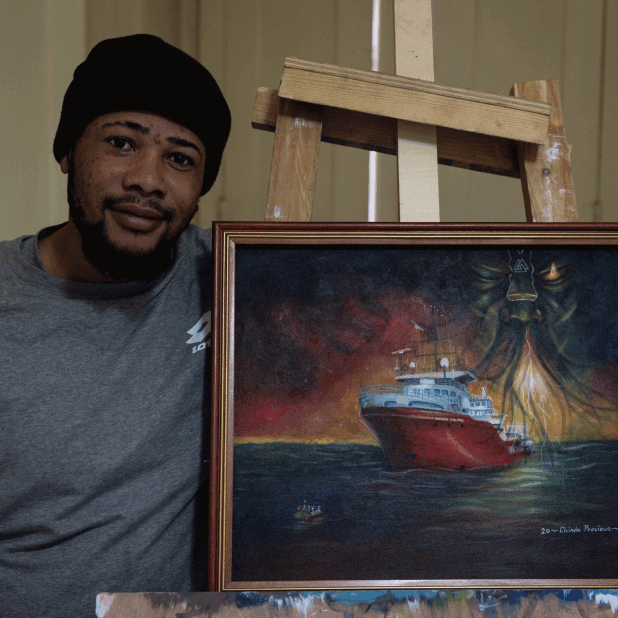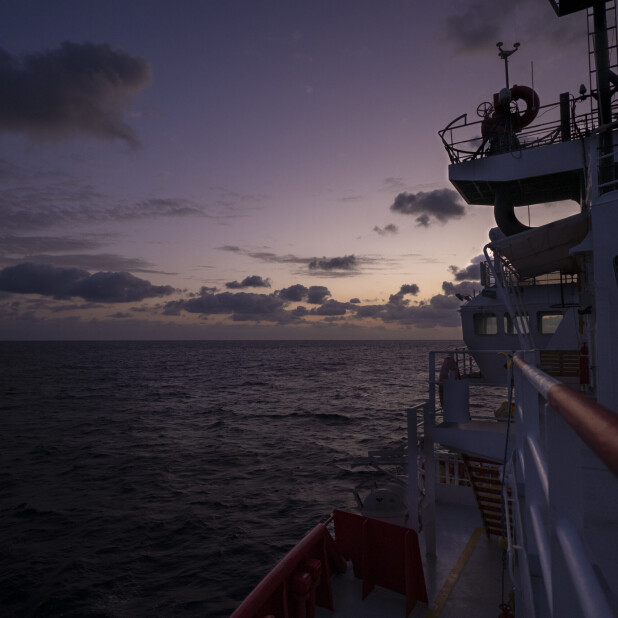
Joint statement by non-governmental organisations (NGOs) involved in search and rescue activities in the Central Mediterranean
In light of the increasing death toll in the Central Mediterranean since early 2023, coinciding with the adoption of a new law by Italian authorities and the systematic assignment of distant ports to humanitarian rescue ships, we call on the Italian government to bring an immediate halt to the obstruction of our lifesaving activities at sea
Over the past year, search and rescue NGOs have repeatedly warned about the risk of mounting dead in the Central Mediterranean following the implementation of a new set of rules by Italian authorities which specifically Target and hinder their search and rescue activities at sea. With more than 2,500 men, women and children reported dead or missing on this particular migration route in 2023 – the deadliest year since 2017 – and at least 155 deaths already this year¹ , all rescue capacities are urgently needed.
One year ago, on 24 February 2023, the Italian parliament converted Decree-Law 01/2023 into Law 15/2023. This law is a clear strategy by authorities to reduce the presence of NGO ships at sea, to limit their capacity to carry out rescues, and to prevent arrivals on Italian shores at all costs.
This deliberate obstruction of the lifesaving activities of NGOs takes place in an environment in which search and rescue capacity at sea is already grossly inadequate. As well as violating international and European laws, this political game worsens the rescue gap and has disastrous consequences, making the Central Mediterranean – already one of the world’s deadliest migration routes – even more perilous. The first anniversary of the 26 February shipwreck near the Calabrian town of Cutro, in which at least 94 people lost their lives just a few hundred metres from the Italian shores a year ago, is a bleak reminder of this tragic reality.
Inhumane dilemmas
The law stipulates, among other rules, that NGO rescue ships should head immediately to a port following a rescue, forcing them to ignore other boats in distress in the area. This directly contradicts the captain’s duty to rescue people in distress at sea, as stipulated under international maritime law. NGOs which disobey the Italian rules face a fine of up to €10,000 and the prospect of their ship being detained for at least 20 days and potentially confiscated by the authorities.
“In many cases, we must choose between complying with the Italian regulation while knowing we might leave behind people at risk of drowning, or fulfilling our legal duty to carry out rescues, and subsequently facing fines, detention and the possible confiscation of our ships. The detention of rescue ships only exacerbates the void in the Central Mediterranean and the dangers for people attempting the sea crossing,” alert the organisation signatories.⁴
Hundreds of days lost at sea
Since February 2023, nine NGO rescue ships have been detained by Italian authorities on 16 occasions², amounting to more than 300 days of being kept from the sea and prevented from assisting people in distress.
The detrimental impact of the law is compounded by the Italian government’s practice of assigning distant ports in the north of Italy to the larger NGO vessels for disembarking rescued people. These ports can be up to 1,600 km and five days’ navigation from the rescue location. Again this practice is in breach of international maritime law, which requires people to be brought to a place of safety “as soon as is reasonably practicable”.
In 2023, NGO rescue ships were forced to travel more than 150,500 extra km to reach distant ports – equivalent to travelling more than three and a half times around the world, and translating into at least 374 unnecessary days of navigation, compared with disembarkation in closer available ports in Sicily and Lampedusa.³
“This represents hundreds of days spent away from the search and rescue area and where people’s lives are at risk,” denounce the organisation signatories. “As well as keeping NGO ships from the sea, this practice also causes unjustified delays for rescued people who need to access vital medical assistance and protection services on land.”
A heavy price
While humanitarian search and rescue activities at sea are increasingly obstructed year by year, the real price is paid by the people seeking safety in Europe. Meanwhile, the Libyan Coast Guard continues to conduct illegal interceptions and forced returns to Libya with the support of the EU and its member states, notably Italy and Malta.
“The widescale exploitation and violence faced by people on the move in Libya have been extensively documented and could amount to “crimes against humanity” according to the UN.⁵ By cooperating with Libya to enable interceptions at sea, Italy and the EU are making themselves complicit in further abuses against migrants, asylum seekers and refugees,”⁶ say the organisation signatories. Just a few days ago, the Italian supreme court confirmed that Libya cannot be considered a place of safety and returning people there is a crime.⁷
To prevent the Central Mediterranean becoming yet a larger graveyard, we call on:
- Italian authorities to immediately stop obstructing NGO search and rescue activities, and to protect the fundamental rights of people in distress at sea by ensuring that NGO ships can assist boats in distress without restriction and that people rescued at sea can disembark in the closest possible safe port, as enshrined in international maritime law;
- Italian and European authorities to foster effective cooperation with NGO rescue ships and deploy dedicated search and rescue vessels in the Central Mediterranean in order to prevent further loss of life at sea;
- The EU and its member states to halt all material and financial support to the Libyan Coast Guard and governments responsible for serious human rights violations.
¹
Source: International Organization for Migration
² Aurora (2 times), Geo Barents (1 time), Louise Michel (1 time), Mare*Go (1 time), Mare Jonio (1 time), Ocean Viking (3 times), Open Arms (3 times), Sea-Eye (3 times), Humanity 1 (1 time).
³ For the details on the calculation: https://sos-humanity.org/en/our-mission/change/over-a-year-of-operation-time-lost/
⁴ In July 2023, five NGOs (ASGI, Emergency, Oxfam Italy, MSF and SOS Humanity) submitted a formal complaint to the European Commission, asking to put under scrutiny the Italian law 15/2023 and the Italian authorities’ practice of assigning distant ports.
⁵ https://news.un.org/en/story/2023/03/1135052
⁶ The NGO European Center for Constitutional and Human Rights (ECCHR) filed a communication to the International Criminal Court, demonstrating that high ranking officials of the EU and of EU member states co-perpetrate crimes against humanity in cooperating with Libya to enable interceptions at sea: https://www.ecchr.eu/en/case/interceptions-of-migrants-and-refugees-at-sea/#:~:text=Based%20on%20available%20evidence%2C%20ECCHR,fundamental%20rules%20of%20international%20law%20
⁷ https://www.ansa.it/english/newswire/english_service/2024/02/17/handing-over-migrants-to-tripoli-a-crime-supreme-court-3_b6b931f6-ec3d-471e-be01-68c31c2fe5df.html
Signatories:
Alarm Phone
Borderline Europe
Captain Support Network
CompassCollective
Emergency
Iuventa Crew
Maldusa
Mare*Go
Médecins Sans Frontières/Doctors Without Borders (MSF)
MEDITERRANEA Saving Humans
Louise Michel
OpenArms
RESQSHIP
r42 – SailAndRescue
Salvamento Marítimo Humanitario
Seebrücke
Sea-Eye
Sea Punks
Sea-Watch
SOS Humanity
SOS MEDITERRANEE
United4Rescue

